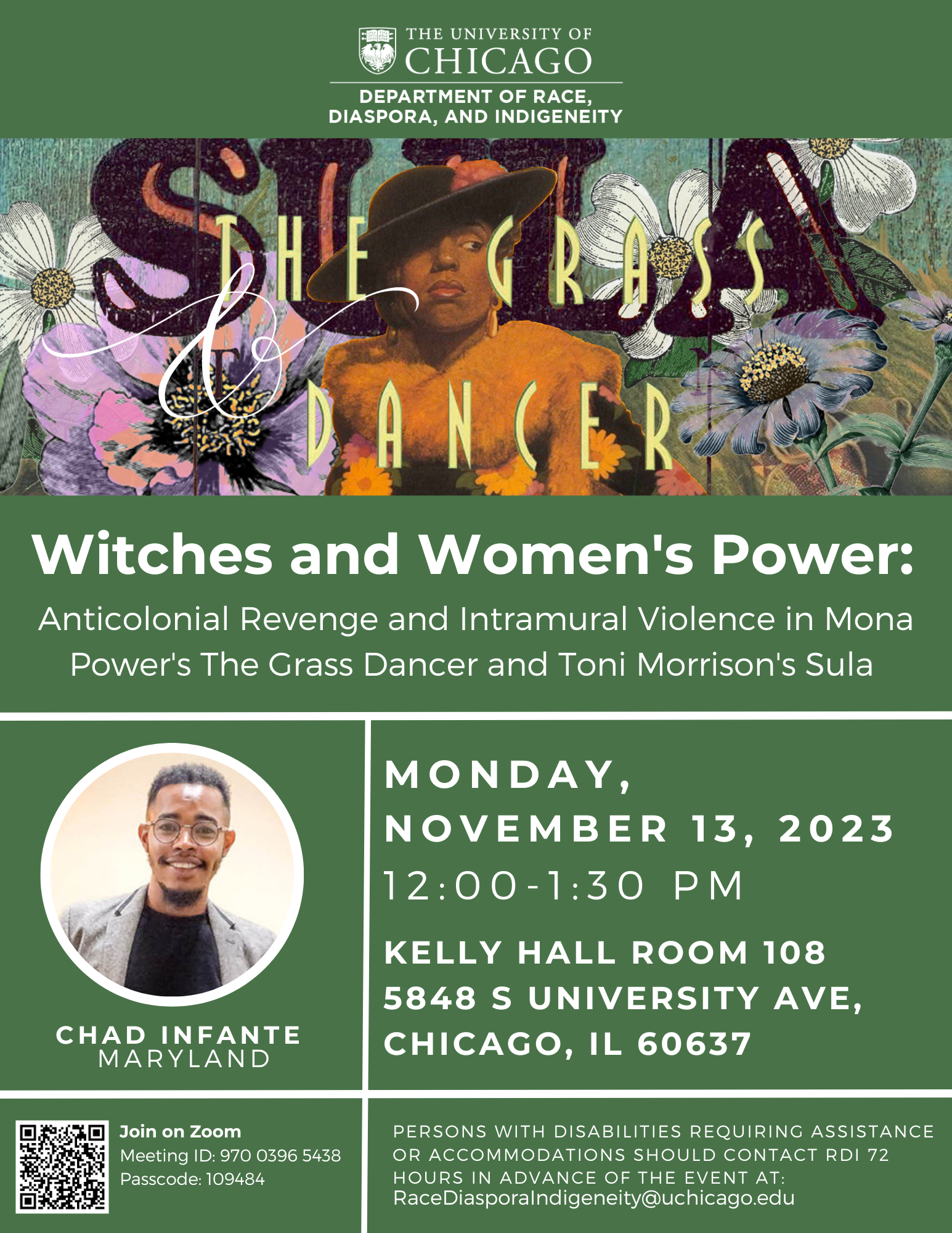Event
Witches and Women's Power: Anticolonial Revenge and Intramural Violence in Mona Power's The Grass Dancer and Toni Morrison's Sula
Nov 13, 12:00 PM - 1:30 PM
Exploring the depiction of violent anticolonial response in literature, this talk reads Mona “Susan” Power’s The Grass Dancer and Toni Morrison’s Sula together as a method of bringing Native American and African American Studies in parallelisms. Drawn from the third chapter of my manuscript, Grammars of Interrogation: Murder and the Metaphysics of Gender in Black and Indigenous U.S. Literature, this talk argues that when desires for anticolonial violence cannot be directed at their intended target—the figure of the settler colonizer and his colonial institutions—then these desires exhibit a tendency to redound inwards, a tendency to produce self-harm or intra-communal violence. Dedicated to self-criticism and analyzing the dynamic interplay between various structures of power, I indicate that these works evaluate the thin line between self-protection and communal harm to indicate that women and queer people are not infallible and are susceptible to being conscripted into the project of whiteness and settler colonialism. The women characters of these novels wield significant power in affecting the material and spiritual wellbeing of their family members and their wider community. Those who affect their community negatively are designated as witches, practitioners of bad medicine. Nevertheless, despite the criticism offered of these characters, these novels endeavor to contextualize their actions as a product of negotiating survival in a colonial context. Designated as witches, as presumed “bad” members of the community, the women characters of Sula and the Grass Dancer serve a dynamic representation of both negative and positive examples of self and community creation.
Chad B. Infante is an Assistant Professor in the Department of English at the University of Maryland College Park. Chad earned his doctorate in English from Northwestern University in 2018. He is originally from Jamaica and studies Black and Indigenous U.S. and Caribbean literatures, gender, sexuality, critical theory and political philosophy. Chad has published the essay “Colonial Metaphor, Colonial Metaphysics: On the Poetic Pairing of Blackness and Indianness in Diacritics in Spring of 2023 and has a forthcoming essay in MELUS entitled “Colonial Etiology: Globalism and the Debate Between Black and Native American Studies.” His book manuscript in progress, Grammars of Interrogation: Revolution, Revenge, and the Metaphysics of Gender in Black and Indigenous U.S. Literature, studies representations of anticolonial murder, vengeance, and revenge in Black and Indigenous literature and art as a philosophical response to colonial violence and as a desire for a feminist and queer rendition of revolution. He is a comparatist and is currently working on several articles that read at the intersection of Black and Native Studies, covering a wide array of topics, from contemporary politics to animated cartoons and from human-animal relations to visual art.
 THE UNIVERSITY OF CHICAGO
THE UNIVERSITY OF CHICAGO


